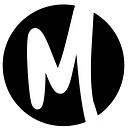This two-question combo can help you look past the validation-seekers and find the most intelligent thinkers on your team
What’s the fastest way to identify the most intelligent people in a group? Start with an easy question. Then ask a complex one.
Say you’re on a Zoom call with your marketing team. You need ideas on how to spend the last unallocated $5,000 of your campaign budget. There are a lot of different directions you can go, so whose ideas do you trust? Shailesh Panthee, a doctor in Nepal, suggests that opening with an easy, straightforward question is a quick way to reveal who’s eager — maybe too eager — to prove themselves.
For example, you could say, “Remind me again, what does CTR stand for?” (CTR means click-through-rate, the percentage of people who click on an element after viewing it. Most people in marketing know the term.) And then sit back and listen. Who’s blurting out the answer?
Overeager responders are often so desperate for brownie points that they forget to consider whether their contribution is even all that valuable and skip the fact-checking and analysis to go straight for the win.
There’s another reason why smart folks might hesitate to answer obvious questions: They suspect it’s a trap. I’m not a genius, but as someone who raised his hand a lot in class, I can say that whenever my English teacher in Munich asked for straight-up vocabulary translations, I was skeptical. “Why was she asking us the word for ‘bread’?” I’d wonder. “Is she hiding a more difficult follow-up question behind this simple opener?”
If you’re on the other side of this equation — leading that Zoom call — that’s exactly what you should be doing. With the noise cleared away, you can now drop the actual, more complex, probably more creative ask: How should we spend our remaining marketing budget? Chances are, now, Overzealous Oliver and Valerie Validation-Seeker will hold their breath. They’ll either be content with the approval they’ve snagged from answering the simple question or, quite frankly, stumped.
The process of drawing out the smarter people in the room won’t be as cut and dry. You might have to prompt folks by calling them out by name. They may respond with another question, such as, “What’s our primary goal in spending the money?” Or they’ll look through their notes — they’ve probably been quietly pondering for a while. They might be a bit hesitant. They understand that there’s never just one end-all, be-all answer, and they have no shame in calling on others to improve on their thinking. Eventually, however, they will suggest an idea.
If you’re a leader who wants to know who on your team is an innovative problem-solver, who knows how to think instead of merely what to think, this is the moment you’re trying to reach.
Smart people know that listening is more valuable than talking and that neither beats thinking for yourself. They try to avoid repeating the obvious so they can spend their time and energy on what requires analysis and creativity.
Being too eager opens us to error and careless mistakes. Reserve and structured thinking won’t always stand out, but they’re always worth commending.
